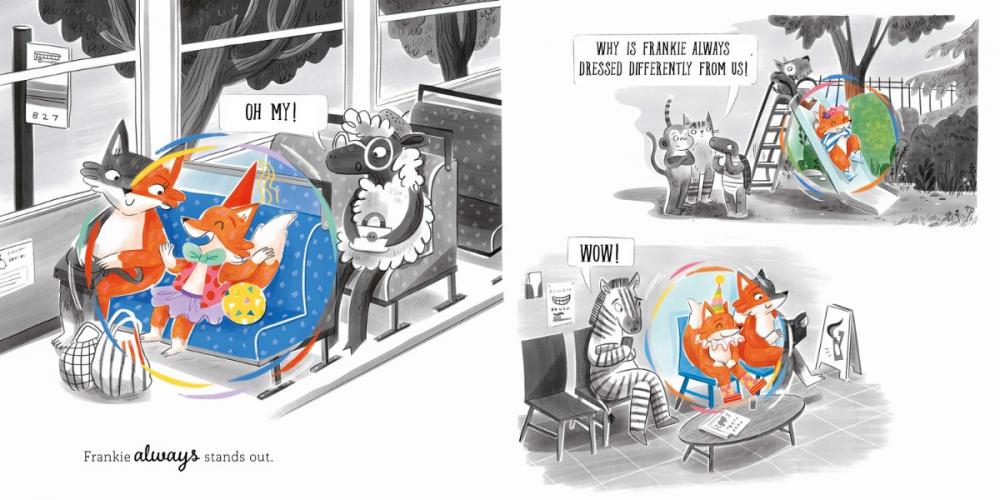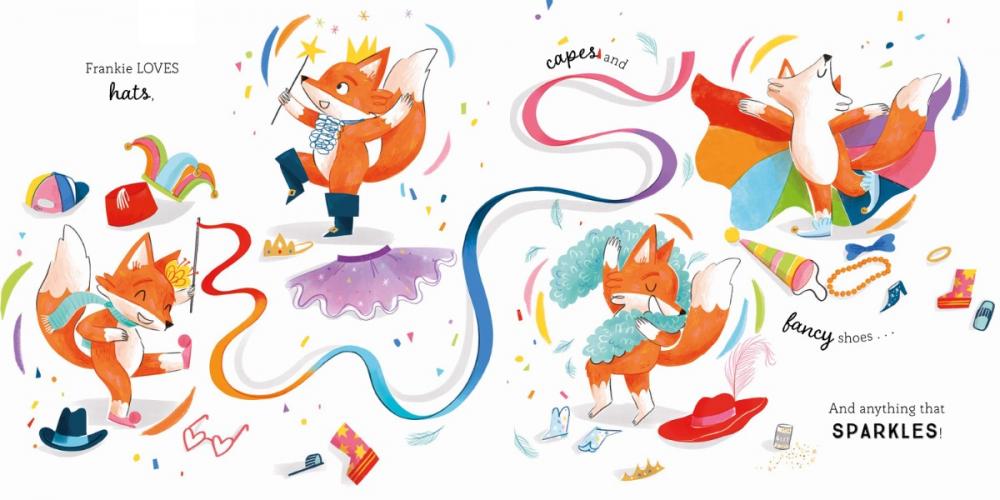search
date/time
 | Lancashire Times A Voice of the Free Press |

Andrew Palmer
Group Editor
5:09 PM 18th May 2022
family
Fantastic Frankie A Tale For Our Times

The blueprint for defining masculinity and femininity has for ages had a bias towards what we all recognise as ‘social norms’. But what are these norms with their unspoken rules that drive cultural narratives?
For Jess Rose, it’s important to let people be themselves and not be limited by a social stereotype. That’s why she has written Fantastic Frankie, inspired by her playing games with her son who loves dressing up and playing games where he can wear capes and dresses. He was happily dressing up and often picked the princess dresses but as soon as he went to school and realised other boys didn’t wear the same clothes, he grew shy and lost his confidence.
So, Jess decided to break those taboos around statements that boys need to toughen up and to change the way we traditionally view gender.
“I work as an illustrator in children’s publishing, so it is my world,” Jess told me. “Although, I hadn’t written books before, I have always told stories to my children as they have been growing up.
“The Idea for Fantastic Frankie came from my eldest son who was five at the time. He doesn’t always fit into the gender norms and as he was growing up, we let him, and his brother, play with whatever toys they wanted, and they have always been confident in themselves.

“The bedtime stories I made up were usually around something that had happened during the day and that’s how Fantastic Frankie came about.”
Jess explains the fox in her story is happy because they can be themself himself, but it wasn’t until lockdown that she put pen to paper as she explained.
“The publishing world kind of went quiet for a brief period and during that time I felt increasingly that my son cannot be the only one having the same thoughts and feelings. Ultimately, we should be raising children to be happy and content, not focused on what they can and can't play with.”
Half the battle is changing our subconscious biases that have clouded views and I want to know if the book has been well-received. Which I am glad to say it has.
“I've not had anybody saying anything or questioning anything. That may be because I decided not to genderise the fox in my story. This story isn’t about gender its about children finding a happiness to be yourself.”
The thing I pick up is Jess’s eagerness not to preach perhaps that’s why the book is a success.
“I'm not trying to say all boys will want to wear dresses r all girls will like dinosaurs and diggers. My other son is so atypical of a boy’s behaviour. It’s more a case of breaking the mould. Allow people to understand that happiness is more important especially being happy in themselves and when that works well, you don't start having to pick apart what other people are doing. My mantra is to be happy, content, and comfortable in your own skin, it's nobody else's skin, it's yours.
“I wouldn't ever want to make somebody who has a child that plays or behaves outside society's gender norms think there is something wrong with them. It’s more I want parents to let their child explore their own world and stay true to themselves. At the end of the day happiness is the most important thing whether you like cars or you like princess dresses or whatever. Children just need to grow up happy."

The book is written for young readers aged between three and six and is full of inclusivity and self-expression. Perfect for young readers aged 3-6 years, and parents alike.
“Fantastic Frankie has helped my son face the things that we don’t often discuss as a society, and I would say he's found his own way of coping.
“I hope other children can take away from this story that having confidence to be themselves and finding their own happiness and individuality are key building blocks to becoming healthy happy adults."
Fantastic Frankie is published by New Frontier Publishing